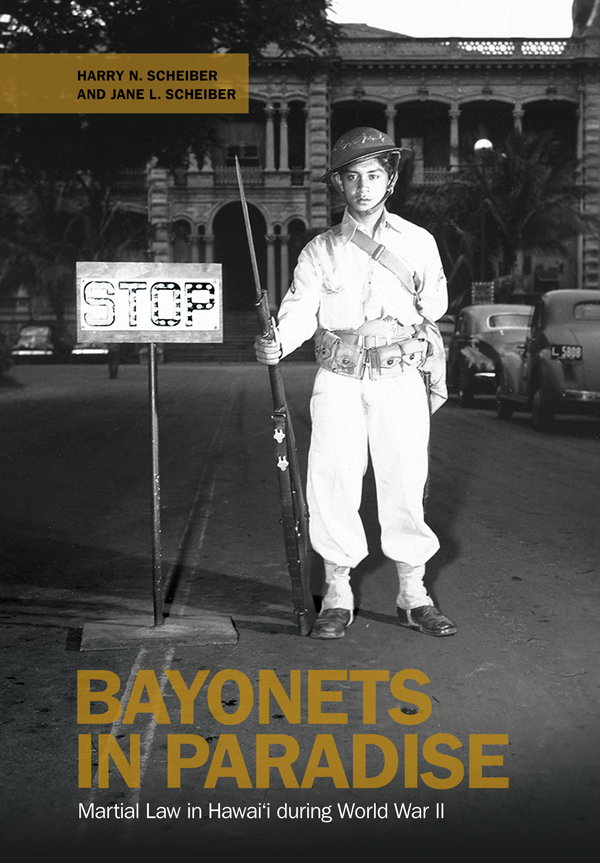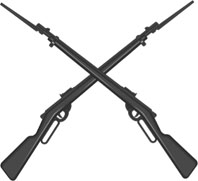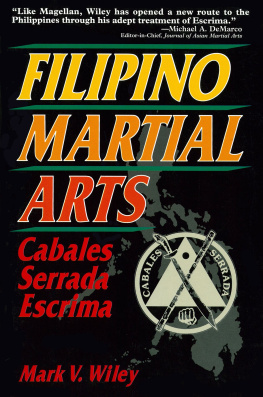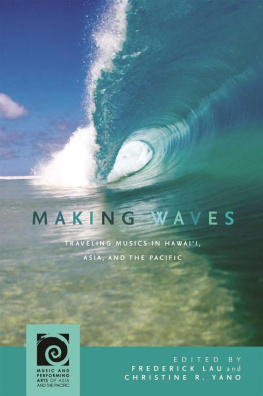Jane L. Scheiber - Bayonets in paradise : martial law in Hawaiʻi during World War II
Here you can read online Jane L. Scheiber - Bayonets in paradise : martial law in Hawaiʻi during World War II full text of the book (entire story) in english for free. Download pdf and epub, get meaning, cover and reviews about this ebook. year: 2016, publisher: University of Hawaii Press, genre: Politics. Description of the work, (preface) as well as reviews are available. Best literature library LitArk.com created for fans of good reading and offers a wide selection of genres:
Romance novel
Science fiction
Adventure
Detective
Science
History
Home and family
Prose
Art
Politics
Computer
Non-fiction
Religion
Business
Children
Humor
Choose a favorite category and find really read worthwhile books. Enjoy immersion in the world of imagination, feel the emotions of the characters or learn something new for yourself, make an fascinating discovery.

- Book:Bayonets in paradise : martial law in Hawaiʻi during World War II
- Author:
- Publisher:University of Hawaii Press
- Genre:
- Year:2016
- Rating:4 / 5
- Favourites:Add to favourites
- Your mark:
- 80
- 1
- 2
- 3
- 4
- 5
Bayonets in paradise : martial law in Hawaiʻi during World War II: summary, description and annotation
We offer to read an annotation, description, summary or preface (depends on what the author of the book "Bayonets in paradise : martial law in Hawaiʻi during World War II" wrote himself). If you haven't found the necessary information about the book — write in the comments, we will try to find it.
Bayonets in paradise : martial law in Hawaiʻi during World War II — read online for free the complete book (whole text) full work
Below is the text of the book, divided by pages. System saving the place of the last page read, allows you to conveniently read the book "Bayonets in paradise : martial law in Hawaiʻi during World War II" online for free, without having to search again every time where you left off. Put a bookmark, and you can go to the page where you finished reading at any time.
Font size:
Interval:
Bookmark:

PUBLISHED WITH THE SUPPORT OF THE
MAURICE J. SULLIVAN & FAMILY FUND
IN THE UNIVERSITY OF HAWAII FOUNDATION
BAYONETS IN PARADISE

Martial Law in Hawaii during World War II

Harry N. Scheiber and Jane L. Scheiber

UNIVERSITY OF HAWAII PRESS
Honolulu
University of Hawaii Press
www.uhpress.hawaii.edu
2016 University of Hawaii Press
All rights reserved
Library of Congress Cataloging-in-Publication Data
Scheiber, Harry N., author.
Bayonets in paradise : martial law in Hawaii during World War II / Harry N. Scheiber and Jane L. Scheiber.
pages cm
Includes bibliographical references and index.
ISBN 978-0-8248-5288-7 (hardcover : alk. paper)
1. Martial lawHawaiiHistory20th century. 2. Japanese AmericansLegal status, laws, etc.HawaiiHistory20th century. 3. World War, 19391945Law and legislationUnited States. 4. World War, 19391945Hawaii. 5. HawaiiHistory19001959.
I. Scheiber, Jane L., author. II. Title.
KFH496.S34 2016
342.73'06280996909044dc23 2015017664
ISBN for this edition:
978-0-8248-5290-0 (EPUB)
978-0-8248-5291-7 (Kindle)
Also available:
ISBN: 978-0-8248-5291-7 (Kindle)
ISBN: 978-0-8248-5290-0 (EPUB)
ISBN: 978-0-8248-5289-4 (PDF)
ISBN: 978-0-8248-5288-7 (Cloth)
For further information, please visit:
www.uhpress.hawaii.edu
For Our Family
Inter arma silent leges
(In time of war laws are silent)
CONTENTS
PREFACE
T he current war on terror has highlighted for Americans today the inherent tension between individual freedoms protected by the Constitution and the governments obligations to provide for national security. Three days after terrorist attacks struck the United States on September 11, 2001, President George W. Bush declared a state of emergency, and on September 18, Congress gave the president sweeping authorization to use all necessary and appropriate force against nations, organizations, and individuals to prevent future terrorist attacks. Presidents Bush and Obama have used this authorization to justify a range of actions from indefinite detention to drone strikes to electronic surveillance.
President Bush also signed an executive order announcing that military tribunals would be established to conduct secret trials of foreign nationals who were terrorists or suspected terrorists. In authorizing the military tribunals, Bush declared that an emergency existed for national defense purposes, and that issuance of this order is necessary to meet the emergency.
Yet neither military tribunals nor the denial of habeas corpus rights was entirely without precedent. President Lincolns suspension of the writ of habeas corpus and his use of military trials of civilians in the Civil War is relatively well known. Less familiar is the fact that sixty years before the 9/11 crisis, in another national emergency, military justice supplanted civilian justice in the territory of Hawaii, not just for aliens suspected of acting in the interests of the enemy, but for an entire civilian population of more than 423,000, of whom 89 percent were citizens. For throughout most of World War II, Hawaii was under the full control of the military; the privilege of the writ of habeas corpus was suspended, and the authority of the civilian government was subordinated so fully that the army officially termed the federal judges agents of the military.
This clash between American constitutional guarantees of liberty and the need for national security, as it played out during World War II in the Hawaiian Islandsinvolving the military command, the territorial civilian government, and the Roosevelt administration in Washington, DCis the subject of this book. The authors hope not only to tell the story of this crisis in the history of American democracy, but also to place that crisis in the context of the continuing struggle to protect our freedoms.
ACKNOWLEDGMENTS
T his book is the product of many years, in fact several decades, of research on a topic that was largely obscure for historians, constitutional scholars, and the public outside of Hawaii when we began our work on it. In the course of reconstructing and interpreting the history of martial law in Hawaii, we have become indebted to an honored company of keepers of the traditionto the archivists, librarians, and administrators of the several institutions in which we have done our research. Hence we extend our thanks first to the professional staffs of the University of California, Berkeley, School of Law Library, and especially to Prof. Kathleen Vanden Heuvel; the Bancroft Library, UC Berkeley; the Franklin D. Roosevelt Library, Hyde Park; the National Archives at College Park and at San Bruno; the Manuscripts Division of the Library of Congress; the Bentley Historical Library, University of Michigan; and the Hoover Institution Archives of Stanford University.
For assistance during our hundreds of hours of research in Hawaii, we thank the staff of the King Kamehameha V Judiciary History Center; the Hawaii State Archives; the Japanese Cultural Center of Hawaii, especially Marcia Kemble, Jane Kurahara, Brian Niiya, and Betsy Young; and the reference librarians and archivists of the Hamilton Library, University of Hawaii at Manoa, with thanks particularly to Sherman Seki, who has lent unstinting help with our work in the Japanese Internment and Relocation collection and with the illustrations.
Having the advice and guidance of professional colleagues has been of essential importance to us in writing this book. We wish to thank, above all, Professor Emeritus Roger Daniels of the University of Cincinnati, who for more than fifty years has been the preeminent scholar on the ethnic Japanese and their travails in World War II. He has provided us with detailed, constructive criticisms and suggestions, reflecting his uniquely learned perspective. We also want to express our gratitude to the late Jon Van Dyke, professor of law in the Richardson School of Law, University of Hawaii, whose insights and keen interest in the project were incredibly important to us. Jon and his wife, Sherry Broder, Esq., have regularly extended to us their hospitality, counsel, and above all, a warm and sustaining friendship.
Other colleagues who contributed supportively at different stages of the research, and to whom we are similarly grateful, are our friends Lawrence M. Friedman of Stanford University, Maeva Marcus of George Washington University, Laura Kalman of UC Santa Barbara, Jonathan Lurie of Rutgers University, Sandra VanBurkleo of Wayne State University, and the late Paul Murphy of the University of Minnesota. We also owe special thanks to Dean Avi Soifer and Professor Williamson Chang of the Richardson School of Law, University of Hawaii, and to many other individuals in Hawaii, including the late Chief Justice William S. Richardson of the Hawaii Supreme Court and also members of the Japanese-American community who have shared their reminiscences and offered comments on our work. Formal interviews were kindly accorded us by the late Senator Hiram Fong, the late Mrs. Garner Anthony, and the late John P. Frank, Esq. Any errors of fact and all interpretations in this book are, of course, entirely our responsibility.
Font size:
Interval:
Bookmark:
Similar books «Bayonets in paradise : martial law in Hawaiʻi during World War II»
Look at similar books to Bayonets in paradise : martial law in Hawaiʻi during World War II. We have selected literature similar in name and meaning in the hope of providing readers with more options to find new, interesting, not yet read works.
Discussion, reviews of the book Bayonets in paradise : martial law in Hawaiʻi during World War II and just readers' own opinions. Leave your comments, write what you think about the work, its meaning or the main characters. Specify what exactly you liked and what you didn't like, and why you think so.







